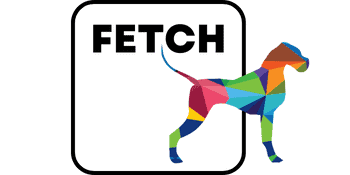
Social media and the evolving role of HQ marketing teams
Reading Time: 6 minutesIn the digital age, multi-site brands face unique challenges and opportunities in managing their social media marketing presence. While brand governance remains a crucial aspect of the central marketing team’s responsibilities, the role of headquarters (HQ) should extend far beyond mere oversight. In a landscape where local relevance and personalisation are paramount, HQs must actively support local teams by providing ready-to-personalise resources, training, and tools tailored to specific markets. This article explores the need for this expanded role, the benefits it offers, and practical strategies for implementation.
The importance of localised content in social media marketing
Localised content has become a cornerstone of effective social media marketing. With 55% of consumers discovering new brands on social media, it is clear that a one-size-fits-all approach is no longer sufficient. Brands must cater to the unique tastes, preferences, and cultural nuances of local audiences. According to recent statistics, 44% of local businesses depend on social media for brand awareness, while 41% rely on it to drive revenue. This reliance underscores the necessity of providing local teams with the tools and resources needed to create impactful, locally relevant content.
Local teams often face challenges such as limited resources, lack of expertise, and time constraints. A study revealed that 52% of local businesses struggle to find time for content creation, and 39% are unable to consistently produce quality content. These challenges highlight the need for HQs to offer practical support, enabling local teams to focus on executing effective social media strategies rather than being bogged down by operational hurdles.
The role of HQ in empowering local teams
The traditional role of HQ in social media governance typically involved setting brand guidelines, approving content, and ensuring consistency across all channels. While these functions are important, they represent only a fraction of what should be offered. To truly empower local teams, HQs should take a more proactive role, such as:
Developing Customisable Content Libraries:
HQs can create a repository of ready-to-use and personalise social media posts – content templates, graphics, and videos that local teams can easily access. These resources should align with the brand’s overall messaging while allowing for local adaptations. For instance, Starbucks provides its local stores with a variety of branded materials, which can be customised to reflect regional events, holidays, and promotions. However, just providing multi-site businesses with access to poorly named folders with large images and video files in and hoping that local teams figure it out for themselves, is not providing support.
Providing Training and Workshops:
Continuous education is essential for local teams to stay updated on the latest social media trends and tools. HQs can organise regular training sessions, workshops, and webinars focusing on content creation, platform-specific strategies, and analytics. This training can empower local teams to make data-driven decisions, enhancing their ability to engage with local audiences effectively.
Offering Access to Advanced Tools and Platforms:
Access to advanced social media management tools can significantly enhance the efficiency and effectiveness of local teams. HQs should provide subscriptions to platforms that offer features like content creation, scheduling, analytics, and social listening.
Establishing a Feedback Loop:
Communication between HQ and local teams should be a two-way street. HQs should actively seek feedback from local teams on the effectiveness of the provided resources and tools. This feedback can inform future initiatives and ensure that the support offered is relevant and practical. Additionally, local teams can share insights about emerging trends or challenges specific to their markets, enabling HQ to adapt its strategies accordingly.
Benefits of a proactive HQ role in social media marketing
Expanding the role of HQ beyond social media brand governance offers numerous benefits for multi-site brands. Firstly, it ensures that local teams are well-equipped to personalise and create content that resonates with their specific audiences. This localisation can lead to higher engagement rates and more meaningful interactions. For example, a study found that 90% of marketers reported increased exposure for their businesses through social media, with 75% experiencing increased website traffic as a result of their efforts.
Secondly, providing local teams with the necessary resources and training can lead to more consistent and cohesive brand messaging across all channels. This consistency is crucial for building brand trust and loyalty. A report revealed that 68% of marketers believe that social media is essential for their business, emphasising the importance of maintaining a strong and unified brand presence online.
Lastly, a more involved HQ can help mitigate the risks associated with local teams deviating from brand guidelines. By offering pre-approved, customisable content, HQs can maintain control over the brand’s image while allowing local teams the flexibility to tailor their messages. This balance is essential for protecting the brand’s reputation while maximising its local relevance.
Practical implementation strategies
Implementing a support system for local teams requires careful planning and execution. Here are some practical strategies for HQs to consider:
Centralised Content Management System (CMS):
Implementing a CMS that local teams can access can streamline the content creation and approval process. This system can house all approved templates, graphics, and guidelines, making it easy for local teams to find and use the resources they need. The best versions of these systems are far removed from simple intranets or brand folders where typically large image and video files are dumped with little or no thought as to how local brand operators can and will use them.
Regular Communication and Collaboration:
Establishing regular check-ins and collaboration sessions between HQ and local teams can foster a sense of unity and shared purpose. This communication can also serve as a platform for local teams to share success stories, challenges, and insights.
All to often HQ marketing teams are guilty of developing tools and platforms that make sense to members of the central team but have little use or relevance in solving the local area marketing needs of a brand multi-site locations.
Incentivising Local Team Performance:
Recognising and rewarding local teams for their social media efforts can motivate them to go above and beyond. Incentives can range from public recognition and awards to monetary bonuses based on performance metrics like engagement rates, follower growth, and content quality.
Data-Driven Decision Making:
Providing local teams with access to analytics tools and training them on data interpretation can empower them to make informed decisions. By understanding their audience’s preferences and behaviours, local teams can refine their content strategies for maximum impact.
Continuous Improvement:
The digital landscape is constantly evolving, and so should the strategies employed by multi-site brands. HQs should regularly review and update their resources, training programs, and tools to ensure they remain relevant and effective. This continuous improvement mindset can help brands stay ahead of the competition and maintain a strong online presence.
Social media marketing success stories
Several brands have successfully implemented a proactive HQ support system for their local teams, resulting in significant benefits. For example, McDonald’s has developed a robust framework for localised marketing, providing franchisees with customisable social media content and marketing tools. This approach has allowed the brand to maintain a consistent global image while catering to local tastes and preferences.
Another notable example is Starbucks, which has excelled in blending global brand consistency with local relevance. Starbucks encourages its local stores to create region-specific content, such as celebrating local festivals or featuring products popular in specific areas. This strategy has helped Starbucks maintain a strong global brand identity while resonating with local audiences, ultimately leading to enhanced customer loyalty and engagement.
Industries needing better support
While many industries have embraced the need for robust HQ support for local teams, some sectors still lag. Franchises and auto dealerships are notable examples where there is often a disconnect between HQ and local branches. These industries frequently face challenges in maintaining consistent brand messaging while also providing the flexibility for local social media marketing initiatives.
In the franchise industry, the struggle often lies in balancing brand consistency with the autonomy needed by local franchisees to cater to their markets. While some franchise systems offer substantial support, many still rely heavily on franchisees to manage their marketing efforts independently. This can lead to inconsistent messaging and missed opportunities for leveraging central resources.
Auto dealerships, similarly, often lack sufficient support from HQs in their digital marketing efforts. While dealerships may receive general guidelines, the lack of customisable and ready to publish content can result in missed opportunities to connect with local audiences. Furthermore, the highly competitive nature of the automotive market necessitates a more agile and responsive approach to localised marketing, which is often hindered by insufficient HQ support.
It’s not a cost – it’s an investment
Investing in localised support is not merely a cost; it is a strategic investment that can yield substantial returns. When HQs provide local teams with the necessary tools, resources, and training, they enable these teams to execute more effective organic and paid social media marketing. This investment often leads to higher engagement rates, increased brand loyalty, and better return on investment (ROI).
For example, a study found that 90% of marketers reported increased exposure for their businesses through social media, with 75% experiencing increased website traffic. These improvements are linked to enhanced brand visibility and engagement, which translate into increased sales and revenue. Moreover, by streamlining content creation and distribution processes, HQs can significantly boost productivity, allowing local teams to focus on strategic initiatives rather than purely operational tasks.
Additionally, providing local teams with advanced tools and training can lead to more efficient use of resources. For instance, access to sophisticated analytics tools enables local teams to measure the effectiveness of their campaigns accurately and make data-driven decisions. This efficiency not only reduces costs but also enhances the overall impact of marketing efforts.
And finally…
The role of HQ in multi-site brands should extend beyond traditional social media brand governance. By actively supporting local teams with pre-written / ready-to-personalise resources, training, and tools, HQs can enhance the overall effectiveness of their social media strategies. This proactive approach not only ensures brand consistency but also allows for greater local relevance, resulting in higher engagement and customer loyalty. As the digital landscape continues to evolve, HQs must remain agile and responsive, continuously refining their support systems to meet the needs of local teams and the expectations of their audiences.
–
References:
The 2023 State of Social Media,” Sprout Social, July 15, 2024.
Top Content Marketing Statistics for 2023: Trends & Insights, Content at Scale, July 2023.
11 Essential Social Media Marketing Statistics For 2023,” Desku.io, March 2023.
B2B Content Marketing Research: 2023 Trends, Statistics, and More,” Content Marketing Institute, May 2023.
–
Fetch is a dynamic, on-demand platform that creates, curates and publishes brand-aligned social media content, empowering marketing and sales teams to achieve more, faster, and for less. Request free demo access today.
Post a Comment
You must be logged in to post a comment.





